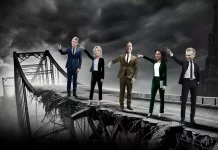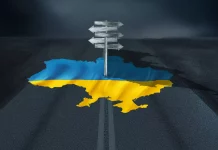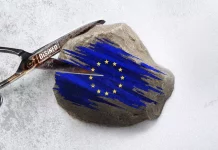
Join the search for the next Putinversteher of the Week!
New week, new choice to make? Behaviour of which public figure did you find worthy of the Putinversteher of the Week award?
Jeremy Corbyn for supporting the reduction of NATO’s presence in Eastern Europe
OR
Marion Maréchal-Le Pen for visiting Moscow and praising alternative media?
Weekly update on Kremlin disinformation efforts
New pro-Kremlin front in Europe
The presidential elections in Bulgaria and Moldova produced two pro-Russian populist presidents. Rumen Radev is a former air force commander and in the past he has argued that Bulgaria needs to balance the requirements of its EU and NATO memberships while seeking ways to benefit from a relationship with Moscow. Igor Dodon featured photographs of him with Vladimir Putin in his campaign and stated that he wants to call a referendum on whether to extricate Moldova from it EU agreement in favour of a membership in the Eurasian Customs Union.
RT’s take on Italy
During the event concerning the referendum on Italian constitutional reform in Rome, RT reported: “Thousands of people are flooding the streets of Roma to protest against the Italian Prime Minister Matteo Renzi,” who initiated the referendum. According to La Stampa, the rally was actually in favour of the reform. It seems this is not the first time an official Russian channel attempted to interfere in the public political debate in Italy. These disinformation stories seem to be often backed up by websites promoting Italian populist Beppe Grillo.
Following similar statements by Angela Merkel, the chief of the German intelligence agency, Hans-Georg Maasen, expressed his worries that Russia might attempt to influence German voters during the next federal elections. Our Jakub Janda shares our opinion on the subject for The Bild, where he says that now that the US presidential elections are over, Angela Merkel is probably going to be the next target of the Kremlin’s disinformation campaign.
The Office of the Prosecutor of the International Criminal Court classified the Russian annexation of Crimea as an international armed conflict in its Report on Preliminary Examination Activities 2016. The report also states that there is evidence suggesting there might also be an international armed conflict going on in eastern Ukraine. The Kremlin reacted to this by withdrawing Russian membership in the ICC.
Commission under scrutiny
Guenther Oettinger, the European Commissioner for Digital Economy and Society, used a private plane offered by Klaus Mangold, a businessman and an honorary Russian consul in Germany, on his way to Budapest, EUobserver reports. The Commission stated that it was “due to the lack of commercial flights” but Benedek Jávor, Hungarian MEP, claims that this is not true. The situation is not clear but there is a strong chance that the Commissionaire might have broken ethic rules concerning the meeting with lobbyists and accepting gifts. According to POLITICO Brussels Playbook, there is also a controversy around the fact that the Commission ended its state aid investigation into Paks II, a nuclear plant built and financed by Russia and connected to Mr Mangold.
Euroatlantic experts on disinformation warfare
Edward Lucas, in his article for CAPX, very fittingly points out that the people who voted for Donald Trump were motivated by their “alienation, grievance, and justified scorn;” the same feelings which are the basis of support for anti-systemic and pro-Kremlin parties elsewhere in the world. He calls to the European elites and commentators to think about why people do not trust them in order to prevent more populist politicians getting to power and resist the Russian threat.
People who spread disinformation on the internet can have various motivations. In a very interesting article in BuzzFeed News, you can read about teenagers from the Balkans who run websites full of fake stories about the US presidential elections and Donald Trump in order to gain clicks and earn more money.
Putinversteher of the Week
Have you found the behaviour of some Western politician or other publicly known figure worth the award? Let us know! You can nominate your candidate for the next week by replying to this e-mail or via #PutinversteherOfTheWeek.
You, the readers of the Kremlin Watch Monitor, were asked to vote on the next Putinversteher of the Week, and your choice was clear:
Steven Seagal

This martial arts expert, Hollywood actor, and a long-time friend of Vladimir Putin was recently presented with a Russian citizenship. He expressed his warm feelings towards the Russian president several times, describing him as “one of the greatest world leaders” and stating that he thinks of him “as a brother.” They share their hobby in martial arts; they both have black belts, Seagal in aikido and Putin in judo. In the past, Seagal described the Russian annexation of Crimea as a reasonable act in order to protect Russians in Crimea and called Crimea “idiotic.” Allegedly, Vladimir Putin even wanted Seagal to be made an honorary consul of Russia in California and Arizona in 2013, but the United States refused. Instead, according to The Telegraph, Seagal starred in a promotional campaign for ORSIS, a Russian gun manufacturer. He also participated in a show organized by the Night Wolves, a Russian bikers club.
Kremlin Watch Reading Suggestion
The Kremlin Trojan Horses: Russian influence in France, Germany, and the United Kingdom; by Alina Polyakova, Marlene Laruelle, Stefan Meister, and Neil Barnett, published by The Atlantic Council
Since the start of the economic crisis in 2008, the Kremlin increased its influence operations in France, Germany, and the United Kingdom and developed relations with local far-right and anti-Western political groups. Russian support to Front National (FN) in France is explicit, and the party openly accepts financial support from Moscow. There are also two other pro-Russian camps in France, the far-left and the Republicans, but they are more nuanced in their views. A closer relationship with Russia is advocated by the Socialist Party member Jean-Luc Mélenchon as well as by the Communist Party which remains very weak. Among the centre-right Republicans, the pro-Russian group is formed around the former Prime Minister François Fillon (who just ousted Nicholas Sarkozy in the first round of Republican primaries), the former State Secretary Jean de Boishue, and Igor Mitrofanof. However, many people around Nicolas Sarkozy also publicly support the Kremlin’s position on the Ukrainian crisis and the De Gaulle tradition of balancing between Russia and the United States is becoming a trend between the Republicans.
Notwithstanding, the French government should support investigative journalists and independent media in their efforts to investigate ideological and financial connections between political groups in France and the Kremlin. In addition, financial supporters of NGOs and other institutions which are promoting the pro-Kremlin and anti-EU narratives should be identified since they can influence the electorate on the topic of the future of the European Union.
Czech Disinformation Corner
The main “western” topic of the disinformation websites was the victory of Donald Trump. Considering the error of the poll agencies which predicted Hillary Clinton to win, there have been many theories about the manipulating of the polls and the whole elections alike; and stories emerged about Trump winning despite this unfair environment. The main manipulator, according to the outlets, seems to be billionaire George Soros and activists paid by him. Some websites warned that the current elites and lobbyists might boycott the election results, for example by declaring martial law by President Obama.
Another theme was the decision of the British court, which conditioned the start of the Brexit process by the approval of the British Parliament, without which the British government cannot initiate negotiations with the European Union.
The articles on monitored websites reflected it with a clear stance – the British court decided against the will of the British people and undermines the democratic system. One of the articles called the situation “courtocracy,” another one claimed that considering the fact that the United Kingdom has no constitution, the people actually have no guaranteed rights. Servers also questioned the independence of the British judiciary, claiming that the court is under control of the European Union and globalists, but of course without any evidence provided.
Kremlin Watch is a strategic program of the European Values think-tank, which aims to unravel and confront instruments of Russian hybrid war which is focused against liberal-democratic system. Find out more at www.europeanvalues.net/kremlin





